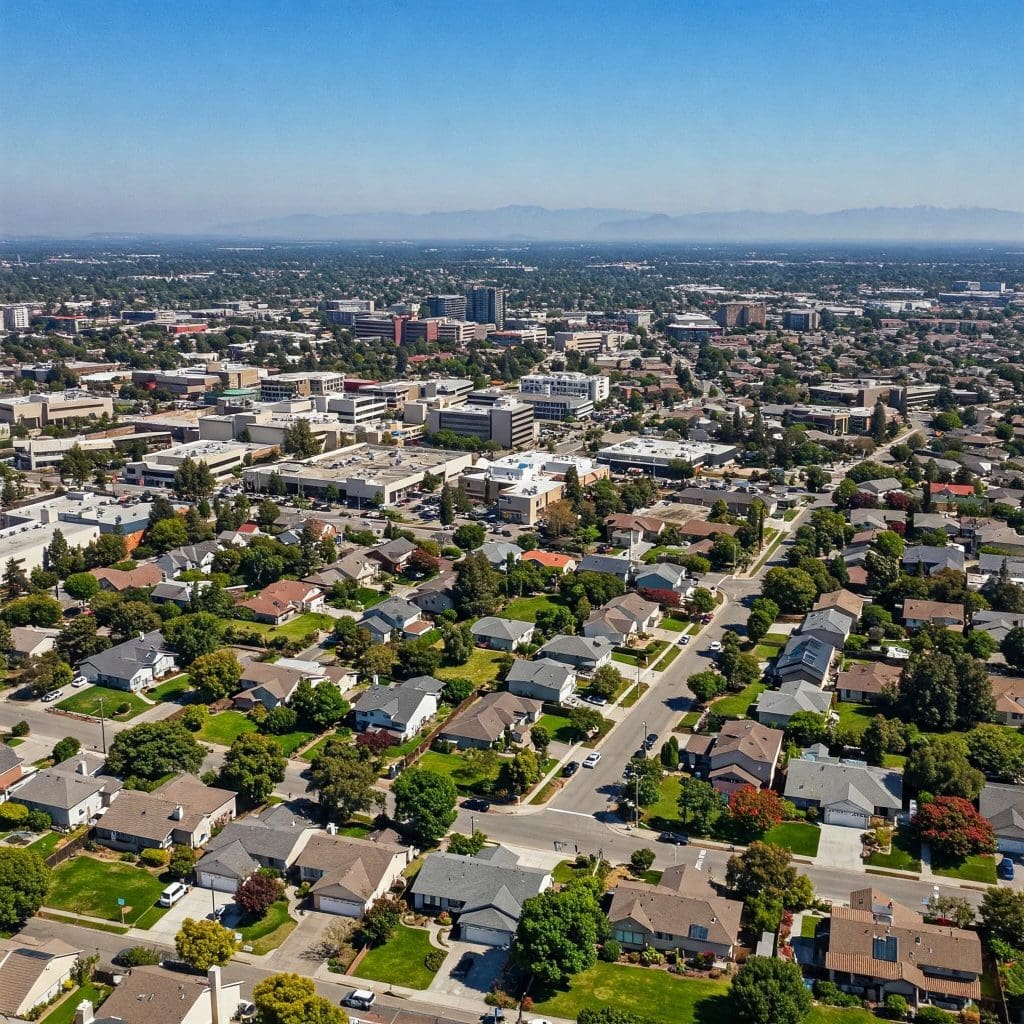SBA Loans in Wisconsin: The 2025 Guide for Entrepreneurs and Small Businesses
Applying for a Small Business Administration (SBA) loan in Wisconsin can be a transformative step, whether you’re launching a startup, acquiring an established company, buying commercial real estate, or fueling operational growth. This 2025 guide details everything you need to know about SBA loan programs in Wisconsin, including qualification criteria, leading local lenders, current rates and terms, step-by-step application advice, and unique statewide incentives for business success.
- SBA Loans in Wisconsin: The 2025 Guide for Entrepreneurs and Small Businesses
- Wisconsin Small Business Lending Overview
- SBA Loan Types Available in Wisconsin (2025)
- Eligibility and Qualification Criteria
- Top Wisconsin SBA Preferred Lenders (2025)
- Step-by-Step SBA Loan Application Process in Wisconsin
- Success Stories from Wisconsin (2025)
- Local SBA District Office, Advising & Support
- Why Choose an SBA Loan?
- Wisconsin Business Incentives & Economic Programs (2025)
- Frequently Asked SBA Loan Questions in Wisconsin (2025)
- Get Started with SBA Loans in Wisconsin
Wisconsin Small Business Lending Overview
Wisconsin is home to over 450,000 small businesses, a vibrant manufacturing base, and innovative entrepreneurs. SBA-backed loans bridge the gap between conventional financing and small business needs, particularly as bank lending standards remain rigorous in 2025. The SBA guarantees a portion of loans made by participating lenders, resulting in improved access, lower down payments, and more flexible terms.
SBA Loan Types Available in Wisconsin (2025)
The SBA offers several loan programs administered through local banks and credit unions across Wisconsin. Here are the main categories:
Need capital? GHC Funding offers flexible funding solutions to support your business growth or real estate projects. Discover fast, reliable financing options today!
⚡ Key Flexible Funding Options:
GHC Funding everages financing types that prioritize asset value and cash flow over lengthy financial history checks:
DSCR Rental Loan
- No tax returns required
- Qualify using rental income (DSCR-based)
- Fast closings ~3–4 weeks
SBA 7(a) Loan
- Lower down payments vs banks
- Long amortization improves cash flow
- Good if your business occupies 51%+
Bridge Loan
- Close quickly — move on opportunities
- Flexible underwriting
- Great for value-add or transitional assets
SBA 504 Loan
- Low fixed rates through CDC portion
- Great for construction, expansion, fixed assets
- Often lower down payment than bank loans
🌐 Learn More
For details on GHC Funding's specific products and to start an application, please visit our homepage:

- SBA 7(a) Loans: The most versatile option, allowing up to $5 million for working capital, equipment, business acquisition, expansion, or refinancing. As of 2025, variable rates start at Prime + 2.5% to 4.75% (Prime rate currently 8.50%).
- SBA 504 Loans: Targeted at commercial real estate and major equipment purchases. Loans up to .5 million (or higher for some manufacturers) with fixed rates (typically 6.5%–7.2% in 2025) and terms up to 25 years. Requires only 10–15% down payment.
- SBA Microloans: Up to $50,000 for startups and smaller businesses needing working capital or equipment. Rates average 9%–13% in 2025 with up to 6-year terms.
- SBA Express Loans: Up to $500,000 with streamlined approvals within 36 hours. Ideal for working capital, lines of credit, and smaller expansions.
- SBA Export Loans: Export Express, Export Working Capital Program, and International Trade Loans empower Wisconsin businesses to grow globally, with maximum loan amounts up to $5 million.
Loan Focus: Commercial Real Estate in Wisconsin
In 2025, many Wisconsin small businesses seek to stabilize or expand physical locations using SBA 504 and 7(a) loans for owner-occupied properties. These programs offer long-term, fixed-rate financing and minimal down payments compared to conventional CRE loans.
Eligibility and Qualification Criteria
- Small Business Status: Must meet SBA size standards for your industry (generally under 500 employees or $7.5M–$40M in revenues).
- Location: Physically located and operating in Wisconsin.
- Business Purpose: Funds must be used for eligible business purposes (no passive real estate investment).
- Credit Requirements: FICO scores of 650+ (ideally 680+ for best rates). No recent bankruptcies, foreclosures, or defaults on government loans.
- Business Viability: Demonstrate capacity to repay. Startups may need a business plan and projections. Operating businesses must show positive cash flow.
- Down Payment: Typically 10% for 504 real estate loans, 10%–20% for 7(a) acquisition/expansion deals. Microloans sometimes require lower equity.
- Collateral: Strong collateral can help but is not always specified for smaller loans.
Top Wisconsin SBA Preferred Lenders (2025)
Preferred Lender Program (PLP) participants speed SBA loan approvals and have proven expertise serving Wisconsin businesses. Leading SBA banks in 2025 include:
- Park Bank (Milwaukee, Madison): Renowned for SBA 7(a) and 504 loans for real estate and equipment.
- Associated Bank: The largest Wisconsin-headquartered bank, with deep experience in business acquisition and working capital SBA lending.
- Waukesha State Bank: Focused on local businesses, with a strong microloan and Express loan department.
- U.S. Bank (Statewide): A major national SBA lender with Wisconsin branch coverage, streamlined processing, and digital applications.
- Summit Credit Union: Top credit union for SBA microloans, particularly for underserved and minority entrepreneurs.
- North Shore Bank: Specializes in SBA 504 and export loans for manufacturers and exporters in the state.
Other active SBA lenders in Wisconsin: BMO Harris Bank, Nicolet National Bank, Johnson Bank, and Old National Bank.
Step-by-Step SBA Loan Application Process in Wisconsin
- Assess Your Needs: Determine your business purpose (real estate, equipment, acquisition, working capital) and how much capital you need.
- Select the Right SBA Program: Consult with an SBA loan specialist or visit your local SBA district office.
- Identify Your Lender: Review SBA Preferred Lender lists and set up a consultation.
- Prepare Documentation: Key requirements include: detailed business plan, financial statements, tax returns (2–3 years), personal financial statement, list of collateral, and for startups—projections and resumes.
- Apply: Complete your lender’s SBA loan application forms, offer supporting docs, and authorize credit/background checks.
- Lender Review: The lender analyzes your request and, as a PLP lender, may approve on behalf of the SBA.
- SBA Approval & Closing: If approved, closing involves signing agreements, providing funds for down payment/equity, and setting up a repayment schedule.
- Funding: SBA guarantees a % of the loan and the lender funds you directly, usually within days of closing.
Success Stories from Wisconsin (2025)
- Milwaukee Coffee Roastery (Equipment & Facility): Used a $465,000 SBA 504 loan via Park Bank to buy a 2,000-sq-ft roasting space and new machinery, repaying over 20 years at 6.7% fixed.
- Green Bay Logistics Startup (Working Capital): Secured a $125,000 SBA Express line from Associated Bank for hiring and fleet setup; funded in two weeks.
- Madison Childcare Center (Commercial Real Estate): Acquired and renovated a building with $1.1M in SBA 7(a) funds from U.S. Bank—only 10% down required.
- La Crosse Bakery (Microloan): Received a $48,000 SBA Microloan from Summit Credit Union to launch new gluten-free products and storefront renovation.
These examples highlight how SBA loans in Wisconsin elevate business opportunities across urban and rural settings.
Local SBA District Office, Advising & Support
The U.S. Small Business Administration Wisconsin District Office is a crucial hub for technical assistance, events, and local lender referrals:
- Website: sba.gov/offices/district/wi/milwaukee
- Phone: (414) 297-3941
- Location: 310 West Wisconsin Avenue, Room 400, Milwaukee, WI 53203
- SCORE Wisconsin: Free mentoring and business plan support statewide.
- SBDC Wisconsin: Training and consulting at 13 regional offices—from Superior to Milwaukee.
Why Choose an SBA Loan?
- Lower Down Payments: Only 10%–20% is usually required.
- Longer Repayment Terms: Up to 25 years for real estate, 10 years for equipment/working capital.
- Competitive Interest Rates: SBA sets rate caps; rates in 2025 often lower than conventional bank options.
- Flexible Approval Standards: SBA involvement allows banks to approve strong plans that might just miss traditional underwriting.
- Government Guarantee: Reduces lender risk, making loans available to more Wisconsin businesses.
Wisconsin Business Incentives & Economic Programs (2025)
- Wisconsin Economic Development Corporation (WEDC): State grants, tax credits, and training incentives for expanding and relocating businesses.
- Manufacturing and Agriculture Credit: Nearly eliminates Wisconsin income tax on qualified production activities.
- Business Development Loan Program (BDL): Low-interest, state-backed loans that can complement SBA financing.
- Targeted Enterprise Zone Program: Enhanced credits for growth in specific rural and urban zones.
- Rural Economic Development Fund: Support for business expansion, infrastructure, and commercialization outside major cities.
Frequently Asked SBA Loan Questions in Wisconsin (2025)
- Q: How fast can I get an SBA loan?
A: Microloans and Express decisions occur within 2–3 weeks; 504 and 7(a) loans run 20–60 days depending on complexity. - Q: Are Wisconsin startups eligible for SBA loans?
A: Yes, provided founders invest equity, have strong business plans, and can show ability to repay. - Q: What collateral is needed?
A: Real estate and equipment loans require the asset being purchased; working capital loans can sometimes be unsecured. - Q: Does my personal credit impact SBA loans?
A: Yes—most lenders require 650+ FICO, with stronger terms above 680. - Q: Can non-profits get SBA loans?
A: No; SBA business loans are for for-profit companies only.
Get Started with SBA Loans in Wisconsin
Whether you need funding for a property, acquisition, startup, or working capital, SBA lenders in Wisconsin are ready to help your business thrive in 2025 and beyond. Connect with the Wisconsin SBA Office or a recommended local lender to begin planning your next big move today.
Get a No Obligation Quote Today.
Use these trusted resources to grow and manage your small business—then connect with GHC Funding
to explore financing options tailored to your needs.
GHC Funding helps entrepreneurs secure working capital, equipment financing, real estate loans,
and more—start your funding conversation today.
Helpful Small Business Resources

